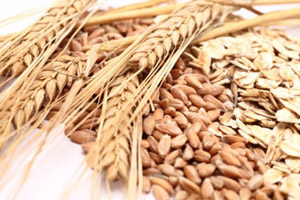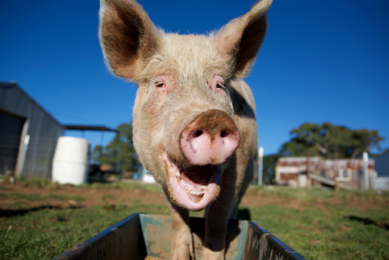Study: Wheat significantly improves FCR in turkeys

Recent work by a research group in Poland indicates that turkey diets supplemented with moderate levels of wheat, either ground and pelleted or as whole grain, enhanced the bird’s gastrointestinal function, which helps to improve feed conversion.
The researchers also observed additional benefits attributable to wheat supplementation including an increase in gizzard weight and a significant reduction in gizzard pH.
The group authored an article summarizing its findings, “Gastrointestinal morphology and function in turkeys fed diets diluted with whole grain wheat,” which appears in a recent issue of Poultry Science, a journal published by the Poultry Science Association (PSA). The lead author, Dr Zenon Zdunczyk, is a professor at the Institute of Animal Reproduction and Food Research, Polish Academy of Sciences. He was joined in the study by researchers in the Department of Poultry Science and the Department of Histology and Embryology at the University of Warmia and Mazury in Olsztyn, Poland.
“In recent years, one view that has gained popularity is that feeding larger particle size and whole grain to poultry improves gizzard function and overall bird health. The aim of our study was to verify a part of this hypothesis, namely that moderate dilution of complete turkey diets with whole wheat – we examined levels up to 22.5% – would improve gastrointestinal function and, hence, contribute to growth performance. Our findings indicate that this is the case,” said Dr Zdunczyk.
In the study, 900 male BIG-6 turkeys were randomly assigned to five dietary treatments: a basal diet; a basal diet diluted with low levels of ground and pelleted wheat or whole wheat; or a basal diet diluted with high levels of ground and pelleted wheat or whole wheat. At successive stages of the experiment, the dilution levels of wheat ranged from 5% up to 22.5%. The 180 male turkeys in each group were studied from five to 18 weeks. They had free access to feed and water and were kept in pens on litter in a building with a controlled environment.
The trial lasted for 126 days, with the birds weighed at the beginning of the experiment (at 29 days of age) and at the end of each feeding period – on days 56, 84, and 126. Body weight gain and the feed conversion ratio were calculated for each period.
The results of the experiment indicated that moderate dilution of a basal diet with wheat does not reduce the final bodyweight of turkeys, and that the use of whole grain wheat improves their physiological parameters and growth performance. Supplementation of the birds’ diets with whole wheat improved feed conversion as a result of improved gastrointestinal tract function, i.e. lower pH of gizzard digesta, and other parameters characterising the physiology of the small and large intestines.
The experiment was conducted at the Research Laboratory of the Department of Poultry Science at the University of Warmia and Mazury. The animal protocol used in the study was approved by the Local Animal Care and Use Committee in Olsztyn, Poland.
While the work was carried out in Europe, it potentially has implications for turkey producers in the US, according to PSA President Dr Michael Smith.
“Turkey production is an important poultry enterprise throughout the world, with regional ingredient availability and varying cultural preferences often resulting in significantly different rearing practices in various markets. Some of the strategies turkey researchers are pursuing – including those discussed in Dr Zdunczyk’s group’s paper – may help producers address these differences,” said Dr Smith.












